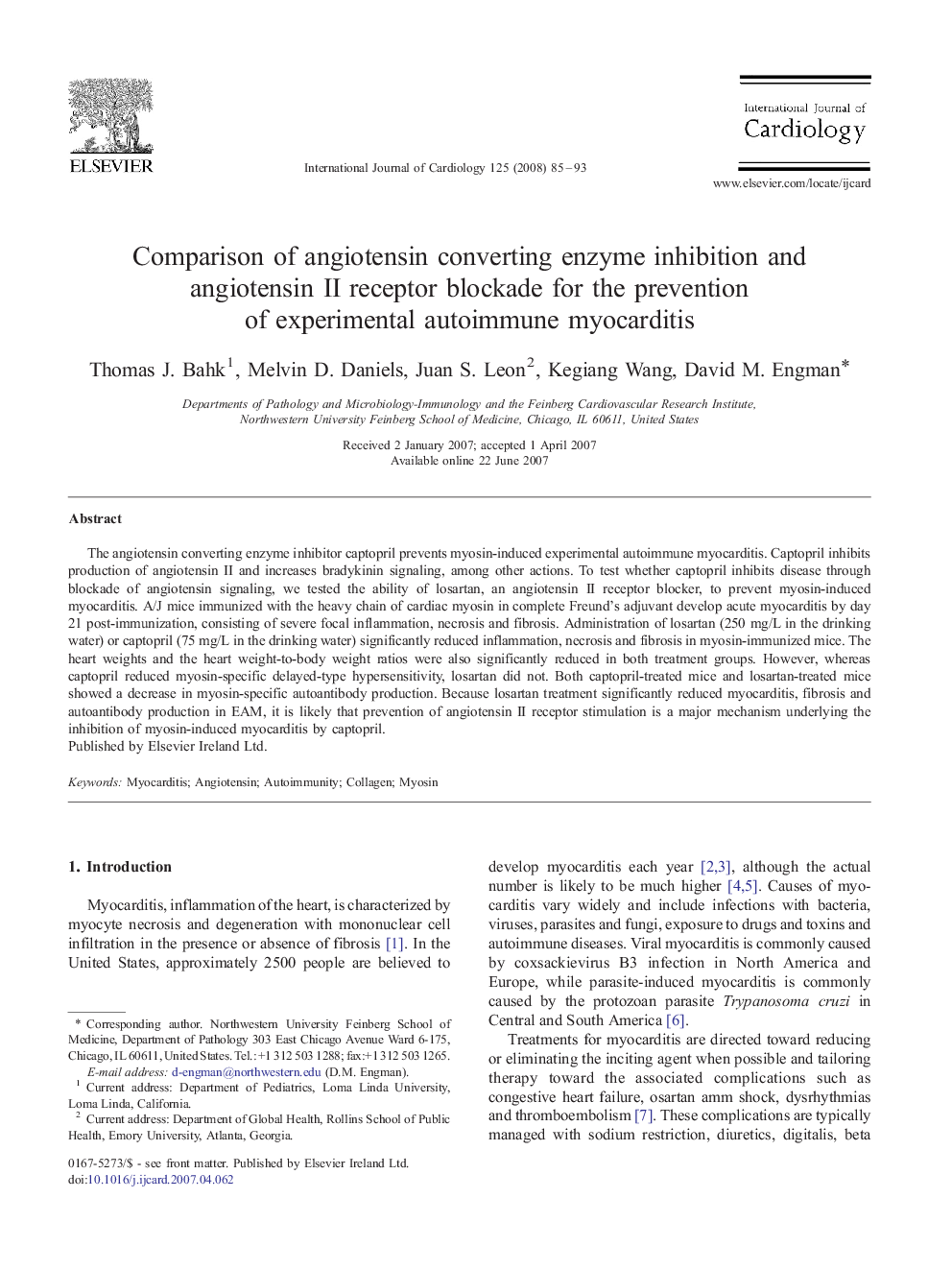| Article ID | Journal | Published Year | Pages | File Type |
|---|---|---|---|---|
| 2934690 | International Journal of Cardiology | 2008 | 9 Pages |
The angiotensin converting enzyme inhibitor captopril prevents myosin-induced experimental autoimmune myocarditis. Captopril inhibits production of angiotensin II and increases bradykinin signaling, among other actions. To test whether captopril inhibits disease through blockade of angiotensin signaling, we tested the ability of losartan, an angiotensin II receptor blocker, to prevent myosin-induced myocarditis. A/J mice immunized with the heavy chain of cardiac myosin in complete Freund's adjuvant develop acute myocarditis by day 21 post-immunization, consisting of severe focal inflammation, necrosis and fibrosis. Administration of losartan (250 mg/L in the drinking water) or captopril (75 mg/L in the drinking water) significantly reduced inflammation, necrosis and fibrosis in myosin-immunized mice. The heart weights and the heart weight-to-body weight ratios were also significantly reduced in both treatment groups. However, whereas captopril reduced myosin-specific delayed-type hypersensitivity, losartan did not. Both captopril-treated mice and losartan-treated mice showed a decrease in myosin-specific autoantibody production. Because losartan treatment significantly reduced myocarditis, fibrosis and autoantibody production in EAM, it is likely that prevention of angiotensin II receptor stimulation is a major mechanism underlying the inhibition of myosin-induced myocarditis by captopril.
